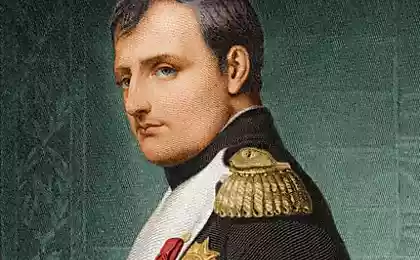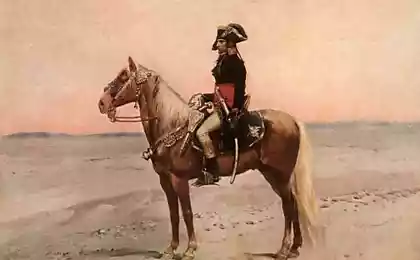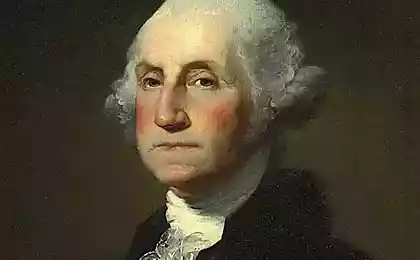135
Why did Napoleon Bonaparte suffer from treason?
“And they lived happily ever after...” – this is how love stories in fairy tales usually end. But in real life, neither kings, nor geniuses, nor recognized beauties with crowds of admired fans are not protected from marital infidelity. "Site" Remind readers of real stories of betrayal that happened to well-known historical figures.
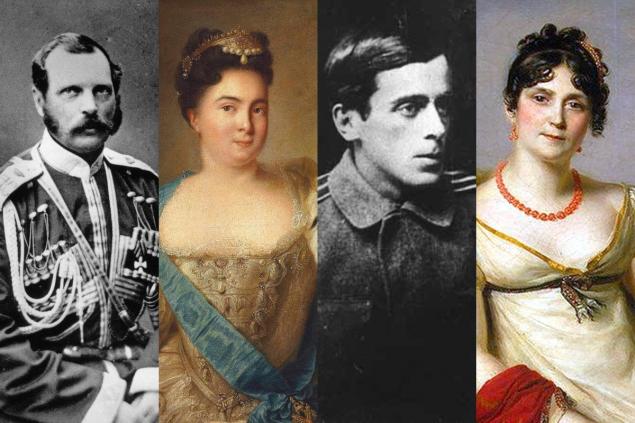
GettyImages Real stories of treason Peter I and Evdokia Lopukhina Wedding in 1689 17-year-old Peter and Evdokia of the influential family Lopukhins was a matter of big politics. And about some romantic feelings of the young king to his bride, of course, was out of the question. In addition, Eudokia did not share the interests of her husband and, according to contemporaries, did not shine with intelligence.
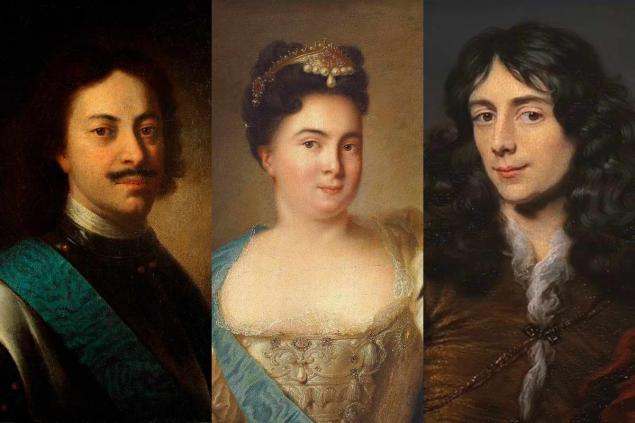
All this was the reason that three years after the wedding, the relationship between the spouses came to naught. Peter the Great stopped writing to his wife and began a stormy affair with the daughter of a Dutch merchant Anna Mons. And in 1697 Eudokia joined the party of opponents of the tsar. This was the last straw, followed by divorce and exile Lopukhina in the Suzdal-Pokrovsky monastery.
Becoming a nun under the name Helena, Peter’s ex-wife not only continued to accept royal honors, but also to everyone’s amazement managed to make a lover. When the truth surfaced, Major Stepan Glebov was executed by a stake, and the disgraced queen was whipped with a whip and forced to watch the execution of her beloved.
It is said that at that moment Eudokia cursed Peter. And that curse came back to him years later with a boomerang of cheating. The brother of Anna Mons, Willim, became the camera-lackey of Empress Catherine Alekseevna. The young man accompanied the wife of Peter on all trips. And it turned out that soon their relationship went far beyond business. As in the case of Glebov, the price for love was life: on November 16, 1724, Mons was executed.
“If you no longer love me, I have nothing to do on earth,” Napoleon Bonaparte wrote to his beloved Josephine. Recall that Josephine was 6 years older than the young general, had already managed to visit the maintenance and had two children from her first marriage. But that didn't stop the ambitious Corsican from making her his wife.
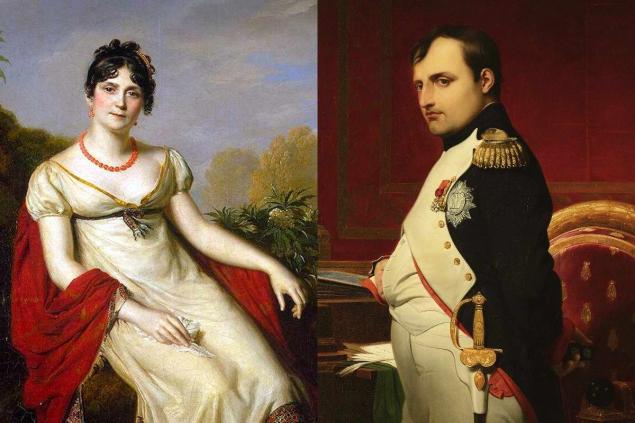
After the wedding, Bonaparte departed for the troops in Italy and continued to bombard his muse with enthusiastic letters. And Josephine remained in Paris and, amused by the passion of her husband, continued to find solace in the arms of pleasant men.
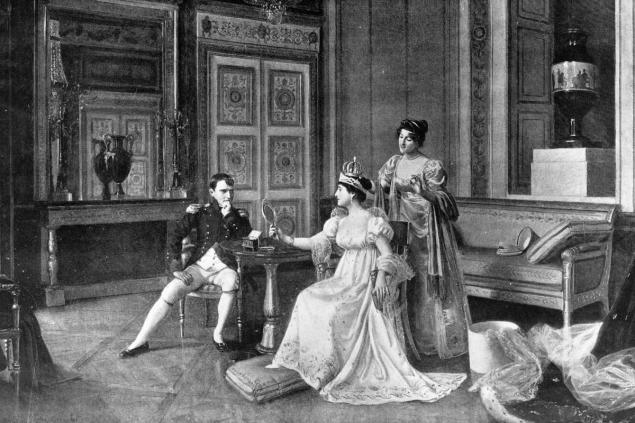
At some point, rumors about his wife’s infidelity exhausted the patience of the great commander and he made a difficult decision to divorce. Napoleon's intentions frightened Josephine, but she managed to beg forgiveness and even unexpectedly for herself really attached to her husband. But the roles changed: now Napoleon changed his mistresses like gloves, not caring about his wife’s feelings.
Beauty and poet Avdotya Panayeva (née Bryanskaya) was born in an artistic family. Her father was a tragic actor and her mother sang at the opera. The girl dreamed of following in the footsteps of her parents and even entered the Academy of Theatre Arts. But at the age of 18 she married journalist Panayev and did not make a career in the theater.
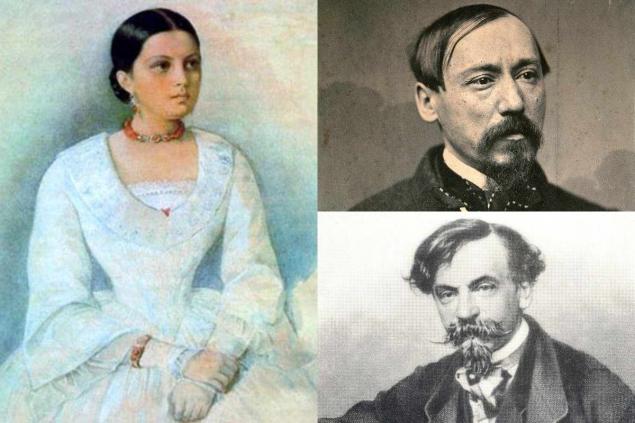
However, this did not prevent her from gaining fame as the hostess of a fashion literary salon and the main beauty of St. Petersburg. "Not only impeccably beautiful, but also an attractive brunette," Fet recalled of Panayeva. And even the short-sighted Chernyshevsky did not skimp on compliments: "Beauty, which is not very much."
But the beautiful family life was far from ideal. Ivan Ivanovich, according to contemporaries, a man empty and a rare hunter to the "strawberry", a few months later lost all interest in his wife. Moreover, he demonstrated his indifference publicly, encouraging red tape on the part of salon visitors.
Panayeva regularly confessed his love. Young Dostoevsky fell in love with her at first sight, and rejected by Avdotya Nekrasov even tried to commit suicide. Over time, the persistence of the poet bore fruit and Avdotya began to reciprocate him. Finally, in 1848, Panayev and Nekrasov settled in the same apartment.
Petersburg was indignant, and around the extravagant trio went the wildest rumors. Most of all went to Panayev, who remained a bachelor with a living wife. Nekrasov was a terrible jealous, often insulted Avdotya Yakovlevna, left and returned again. And then he got cold and started cheating.
However, his relationship with the deceived husband remained friendly. Moreover, Panayev and Nekrasov bought and jointly headed the Pushkin magazine Sovremennik. This strange cohabitation did not end with a wedding after the death of Ivan Panayev in 1862. Avdotya Yakovlevna stopped him, leaving the apartment and marrying the writer Apollo Golovachev, who was 11 years younger than her.
Emperor Alexander II, who went down in history as a reforming king, became one of the few crowned lucky people who married for love. “Princess Mary I liked terribly from the first moment I saw her,” he wrote to his father Nicholas I from a trip to Germany.
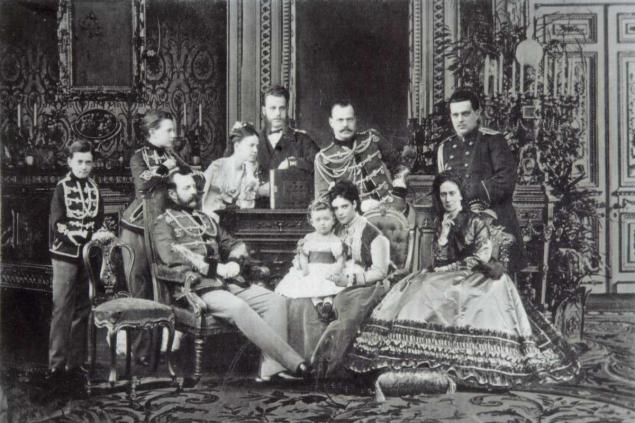
GettyImages seemed to be the perfect marriage. The wife of the emperor never interfered in politics, was well educated, well versed in art and 18 years of life together gave her husband eight children. However, the last pregnancy was so severe that doctors forbade the Empress to have intimate relations.
After the cooling of relations with the Empress, Alexander several times started temporary favorites. And in July 1866, on a walk in the Summer Garden, he met the daughter of Prince Dolgorukov Katerina. Their love was desperate and passionate. Catherine settled in the palace, in the rooms above the chambers of the emperor, and bore him four children.
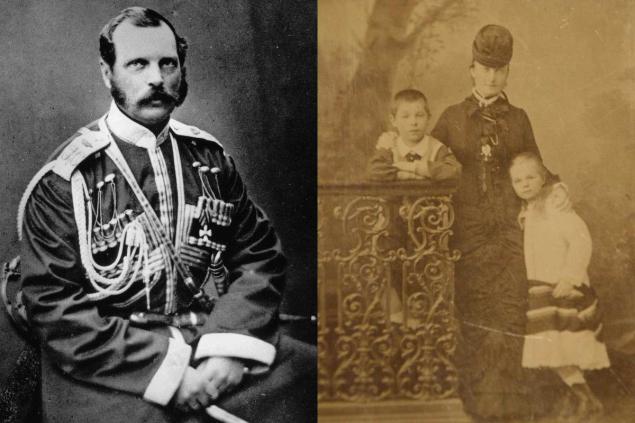
After the death of Empress Maria, Alexander, without waiting for the end of mourning, married Catherine. The hasty marriage was morganatic, that is, she could not become Empress Dolgorukova. But she and her children were given the title of the brightest princes of Yurievsky.
This caused outrage in society and discontent of children from official marriage. But the emperor was adamant and adored his Katenka until his death. His last words to Dolgorukova were: “I feel so happy that this happiness even scares me.”
Her husband and her mistress met on the beach in Koktebel. Marina was looking for beautiful stones on the shore, and seventeen-year-old Sergey volunteered to help her. “To tell everyone that I have a husband, that he is beautiful!..” – Tsvetaeva later wrote in a poem dedicated to her husband.
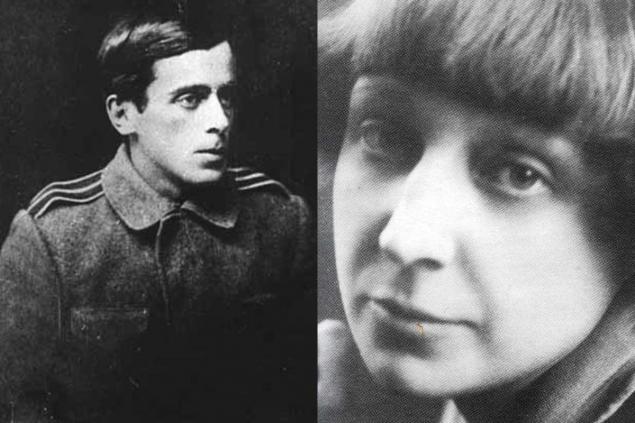
GettyImages' first years together were cloudless. The newlyweds rented a house in Borisoglebsky lane, where their eldest daughter Alya was born. But the war began, and Efron went to the front as a nurse. Then he entered the Junker school, after the revolution fought on the side of the White Army and was forced to emigrate from Russia.
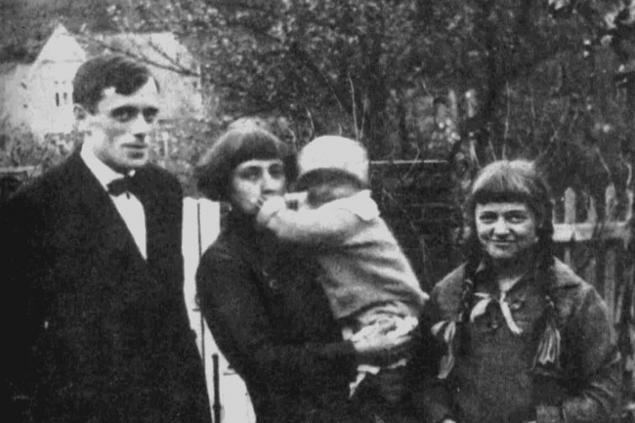
Meanwhile, Tsvetaeva’s passionate poetic nature needed love, and soon she began dedicating equally enthusiastic poems to others. In 1914, Marina began a close relationship with the poet Sofia Parnock. Few people know that the famous poem “Under the caress of a plush blanket ...” is dedicated to her.
In 1916, Tsvetaeva broke out a short romance with Mandelstam. They met again in St. Petersburg, then Osip visited Marina several times in Moscow. She dedicated 10 poems to him and he dedicated 3 to her. After reuniting with her husband in Prague, Marina became interested in Efron’s friend Konstantin Rodzevich. Before the breakup, she sent him a note: “I leave you, loving you with all my heart...” At the end of her life, she said it was the love of her life.
The article and the preview used photos.

GettyImages Real stories of treason Peter I and Evdokia Lopukhina Wedding in 1689 17-year-old Peter and Evdokia of the influential family Lopukhins was a matter of big politics. And about some romantic feelings of the young king to his bride, of course, was out of the question. In addition, Eudokia did not share the interests of her husband and, according to contemporaries, did not shine with intelligence.

All this was the reason that three years after the wedding, the relationship between the spouses came to naught. Peter the Great stopped writing to his wife and began a stormy affair with the daughter of a Dutch merchant Anna Mons. And in 1697 Eudokia joined the party of opponents of the tsar. This was the last straw, followed by divorce and exile Lopukhina in the Suzdal-Pokrovsky monastery.
Becoming a nun under the name Helena, Peter’s ex-wife not only continued to accept royal honors, but also to everyone’s amazement managed to make a lover. When the truth surfaced, Major Stepan Glebov was executed by a stake, and the disgraced queen was whipped with a whip and forced to watch the execution of her beloved.
It is said that at that moment Eudokia cursed Peter. And that curse came back to him years later with a boomerang of cheating. The brother of Anna Mons, Willim, became the camera-lackey of Empress Catherine Alekseevna. The young man accompanied the wife of Peter on all trips. And it turned out that soon their relationship went far beyond business. As in the case of Glebov, the price for love was life: on November 16, 1724, Mons was executed.
“If you no longer love me, I have nothing to do on earth,” Napoleon Bonaparte wrote to his beloved Josephine. Recall that Josephine was 6 years older than the young general, had already managed to visit the maintenance and had two children from her first marriage. But that didn't stop the ambitious Corsican from making her his wife.

After the wedding, Bonaparte departed for the troops in Italy and continued to bombard his muse with enthusiastic letters. And Josephine remained in Paris and, amused by the passion of her husband, continued to find solace in the arms of pleasant men.

At some point, rumors about his wife’s infidelity exhausted the patience of the great commander and he made a difficult decision to divorce. Napoleon's intentions frightened Josephine, but she managed to beg forgiveness and even unexpectedly for herself really attached to her husband. But the roles changed: now Napoleon changed his mistresses like gloves, not caring about his wife’s feelings.
Beauty and poet Avdotya Panayeva (née Bryanskaya) was born in an artistic family. Her father was a tragic actor and her mother sang at the opera. The girl dreamed of following in the footsteps of her parents and even entered the Academy of Theatre Arts. But at the age of 18 she married journalist Panayev and did not make a career in the theater.

However, this did not prevent her from gaining fame as the hostess of a fashion literary salon and the main beauty of St. Petersburg. "Not only impeccably beautiful, but also an attractive brunette," Fet recalled of Panayeva. And even the short-sighted Chernyshevsky did not skimp on compliments: "Beauty, which is not very much."
But the beautiful family life was far from ideal. Ivan Ivanovich, according to contemporaries, a man empty and a rare hunter to the "strawberry", a few months later lost all interest in his wife. Moreover, he demonstrated his indifference publicly, encouraging red tape on the part of salon visitors.
Panayeva regularly confessed his love. Young Dostoevsky fell in love with her at first sight, and rejected by Avdotya Nekrasov even tried to commit suicide. Over time, the persistence of the poet bore fruit and Avdotya began to reciprocate him. Finally, in 1848, Panayev and Nekrasov settled in the same apartment.
Petersburg was indignant, and around the extravagant trio went the wildest rumors. Most of all went to Panayev, who remained a bachelor with a living wife. Nekrasov was a terrible jealous, often insulted Avdotya Yakovlevna, left and returned again. And then he got cold and started cheating.
However, his relationship with the deceived husband remained friendly. Moreover, Panayev and Nekrasov bought and jointly headed the Pushkin magazine Sovremennik. This strange cohabitation did not end with a wedding after the death of Ivan Panayev in 1862. Avdotya Yakovlevna stopped him, leaving the apartment and marrying the writer Apollo Golovachev, who was 11 years younger than her.
Emperor Alexander II, who went down in history as a reforming king, became one of the few crowned lucky people who married for love. “Princess Mary I liked terribly from the first moment I saw her,” he wrote to his father Nicholas I from a trip to Germany.

GettyImages seemed to be the perfect marriage. The wife of the emperor never interfered in politics, was well educated, well versed in art and 18 years of life together gave her husband eight children. However, the last pregnancy was so severe that doctors forbade the Empress to have intimate relations.
After the cooling of relations with the Empress, Alexander several times started temporary favorites. And in July 1866, on a walk in the Summer Garden, he met the daughter of Prince Dolgorukov Katerina. Their love was desperate and passionate. Catherine settled in the palace, in the rooms above the chambers of the emperor, and bore him four children.

After the death of Empress Maria, Alexander, without waiting for the end of mourning, married Catherine. The hasty marriage was morganatic, that is, she could not become Empress Dolgorukova. But she and her children were given the title of the brightest princes of Yurievsky.
This caused outrage in society and discontent of children from official marriage. But the emperor was adamant and adored his Katenka until his death. His last words to Dolgorukova were: “I feel so happy that this happiness even scares me.”
Her husband and her mistress met on the beach in Koktebel. Marina was looking for beautiful stones on the shore, and seventeen-year-old Sergey volunteered to help her. “To tell everyone that I have a husband, that he is beautiful!..” – Tsvetaeva later wrote in a poem dedicated to her husband.

GettyImages' first years together were cloudless. The newlyweds rented a house in Borisoglebsky lane, where their eldest daughter Alya was born. But the war began, and Efron went to the front as a nurse. Then he entered the Junker school, after the revolution fought on the side of the White Army and was forced to emigrate from Russia.

Meanwhile, Tsvetaeva’s passionate poetic nature needed love, and soon she began dedicating equally enthusiastic poems to others. In 1914, Marina began a close relationship with the poet Sofia Parnock. Few people know that the famous poem “Under the caress of a plush blanket ...” is dedicated to her.
In 1916, Tsvetaeva broke out a short romance with Mandelstam. They met again in St. Petersburg, then Osip visited Marina several times in Moscow. She dedicated 10 poems to him and he dedicated 3 to her. After reuniting with her husband in Prague, Marina became interested in Efron’s friend Konstantin Rodzevich. Before the breakup, she sent him a note: “I leave you, loving you with all my heart...” At the end of her life, she said it was the love of her life.
The article and the preview used photos.
How much flew in a penny rest at sea in the USSR
Salad, so that the husband fell in love again and appreciated the culinary talent of his wife



